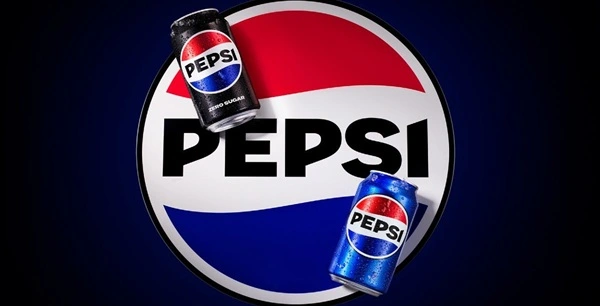In a world driven by ever-evolving consumer tastes and preferences, Pepsi continues to thrive as one of the most recognized and influential beverage brands globally. Owned by PepsiCo, a multinational food and beverage giant headquartered in the United States, Pepsi has established a deep-rooted presence in over 200 countries, including a highly competitive and dynamic market like India. Known for its bold taste and energetic brand personality, Pepsi has evolved from being just a cola drink to a part of popular culture, heavily associated with youth, sports, and entertainment.
In India, PepsiCo has tailored its product strategies to align with local tastes and preferences. From localized marketing campaigns like “Yehi Hai Right Choice Baby!” in the 90s to celebrity endorsements from stars like Ranveer Singh and MS Dhoni, Pepsi has maintained its connection with Indian youth. With growing awareness about health, shifting consumer preferences, and intensifying competition, it is essential to analyze Pepsi’s current standing through a SWOT (Strengths, Weaknesses, Opportunities, Threats) lens to understand its strategic outlook in 2025.

Strengths
1. Powerful Brand Equity
Pepsi is among the top beverage brands worldwide with high recall value and a loyal customer base. In India, Pepsi enjoys strong brand recognition built over decades through mass media advertising and association with cricket, Bollywood, and music.
2. Diversified Product Portfolio
PepsiCo’s vast portfolio includes not just carbonated drinks like Pepsi, Mountain Dew, and 7Up, but also non-carbonated beverages like Tropicana, Gatorade, and Lipton Iced Tea (in partnership with Unilever), and snacks like Lay’s, Kurkure, and Quaker oats. This product mix allows cross-promotion and hedges the brand against declining cola sales.
3. Strong Distribution Network
Pepsi has a vast and efficient supply chain network across India, even reaching semi-urban and rural markets. Its partnership with franchise bottlers and extensive presence in retail stores, restaurants, and e-commerce ensures high product availability.
4. Innovative Marketing and Celebrity Endorsements
Pepsi’s creative advertising campaigns and endorsement strategy have cemented its youthful image. Recent campaigns featuring Indian influencers and cricketers during the IPL have significantly enhanced brand engagement on social media.
5. Adaptation to Local Preferences
Pepsi has localized flavors and marketing messages to better resonate with Indian consumers. Their ability to combine global appeal with local execution is a major strength in a diverse country like India.
Weaknesses
1. Health Concerns Around Sugary Beverages
Increasing consumer awareness about sugar-related health issues has led to declining sales in carbonated drinks globally. Despite diversification, Pepsi still relies heavily on its flagship cola product.
2. High Competition in Indian Market
The Indian beverage market is crowded with competitors like Coca-Cola (Thums Up, Sprite, Maaza), regional soda brands, and a growing number of natural and organic drink options. This limits Pepsi’s pricing flexibility and market share growth.
3. Dependency on Bottling Partners
PepsiCo often relies on third-party bottlers, such as Varun Beverages in India, which can limit control over production and quality. Any dispute or misalignment with bottling partners could disrupt operations.
4. Environmental Criticism
PepsiCo, like many beverage giants, has faced criticism over plastic waste and water usage, particularly in water-scarce regions of India. Although the company has taken steps toward sustainability, public perception can be difficult to shift.
Opportunities
1. Expansion into Health and Wellness Products
PepsiCo is investing in healthier alternatives like sugar-free drinks, coconut water, and energy drinks. With Indian consumers becoming more health-conscious, this segment offers significant growth potential.
2. Rural Market Penetration
While urban areas are saturated, rural India still presents untapped opportunities. With increased connectivity and rising disposable income, expanding low-priced SKUs and regional marketing can drive sales.
3. Digital Marketing and E-commerce
The rise of e-commerce platforms and quick-commerce delivery apps (like Zepto, Blinkit, and Swiggy Instamart) offer Pepsi new avenues for rapid product delivery. Engaging Gen Z consumers through YouTube, Instagram Reels, and influencer-led campaigns can enhance digital reach.
4. Product Innovation
PepsiCo has room to innovate with new flavors, limited-edition launches, and packaging. Launching traditional Indian flavors with a modern twist or functional beverages (infused with vitamins or energy) could open new segments.
5. Sustainability and CSR
Emphasizing sustainability, recyclable packaging, and water conservation can improve Pepsi’s public image. Partnering with NGOs or launching rural clean water initiatives could offer reputational and operational benefits.
Threats
1. Regulatory Challenges
The Indian government has been increasingly regulating food and beverage companies through taxation, labeling norms, and restrictions on advertising to minors. Any adverse policy changes could impact Pepsi’s marketing and profitability.
3. Intense Rivalry with Coca-Cola
Coca-Cola remains Pepsi’s fiercest rival, particularly with strong Indian brands like Thums Up and Maaza in its portfolio. Aggressive pricing or exclusive tie-ups by Coca-Cola can dent Pepsi’s competitiveness.
3. Changing Consumer Preferences
The shift towards natural, low-calorie, or organic beverages is growing. If Pepsi fails to adapt quickly, it could lose relevance among health-conscious and urban consumers.
4. Economic Slowdowns
In times of inflation or economic uncertainty, discretionary spending on soft drinks may decline. Price-sensitive markets like India are particularly vulnerable to such fluctuations.
Conclusion
Pepsi, as part of PepsiCo’s robust global portfolio, continues to be a resilient and adaptable player in the Indian and global beverage market. While the brand faces headwinds such as health concerns and stiff competition, its strengths in branding, distribution, and innovation keep it ahead of the curve. With timely investments in health-focused products, rural market expansion, and sustainability, Pepsi is well-positioned to meet the evolving demands of Indian consumers. The key lies in staying agile, listening to local needs, and reimagining the cola story for a healthier, digitally-savvy India.

Meet Suhas Harshe, a financial advisor committed to assisting people and businesses in confidently understanding and managing the complexities of the financial world. Suhas has shared his knowledge on various topics like business, investment strategies, optimizing taxes, and promoting financial well-being through articles in InvestmentDose.com


